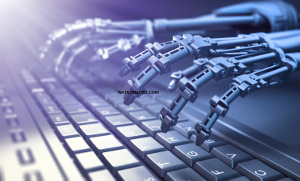IBM Uses AI to Boost Help Desk Support
by Stephanie Faris on Wednesday, April 19 12:00
 When IBM debuted its artificial intelligence (A.I.) system, Watson, on the TV quiz show Jeopardy, experts were excited about the future of the platform in healthcare.
The technology is already being used to diagnose cancer patients through an application developed by IBM and New York's Memorial Sloan Kettering Cancer Center.
When IBM debuted its artificial intelligence (A.I.) system, Watson, on the TV quiz show Jeopardy, experts were excited about the future of the platform in healthcare.
The technology is already being used to diagnose cancer patients through an application developed by IBM and New York's Memorial Sloan Kettering Cancer Center.
But IBM has plans to take the technology beyond the healthcare realm.
In fact, the best use of the technology could be in providing tech support services.
As announced in a recent press release, IBM is using Watson's technology to further automate the help desk.
Watson Meets Tech Support
Even the most experienced technical support professional can't possibly know everything.
Automated tech support can access an extensive database that contains solutions to every possible software or hardware issue that could arise.
Without human reason and logic, though, often these solutions fall short.
Watson uses technology called "machine learning," a form of A.I. where software can adjust future behaviors based on past behaviors.
Once an organization has implemented the technology, it begins to learn about their connected users, the devices, and the software they use on a regular basis.
When someone places a ticket, that information can then be used to create a more personalized experience.
Business Services
Today's businesses feel pressured to offer tech support via multiple channels.
It isn't enough to hand out a phone number and staff a few representatives to take calls during business hours.
Good customer service means offering 24/7 assistance, especially if you're supporting customers outside of your own organization.
A business with an app, for instance, needs to make it easy for users to report bugs, reset passwords, or get help with problems, even if they're using the app on a random Saturday or a holiday.
A.I. means that businesses can offer around-the-clock support without having to pay after-hours employees to handle calls.
The feature will be part of IBM's helpdesk services, which are available to businesses of all sizes. Not only does the software learn the devices of each user, but it can adjust to the person's level of knowledge.
If someone contacts the help desk using technical jargon, for instance, Watson will respond using similar verbiage rather than the layperson's language it would use with someone who was closer to beginner level.
Once it's in place, IBM's A.I. solution can interact with end users through live chat and self-service portals.
The technology can even be set up to interact with customers in brick-and-mortar storefronts.
Easy-to-resolve tickets like password resets can be easily resolved by the software, reducing the workload for a business's human technical support representatives.
When combined with remote desktop takeover, businesses will find they don't have to offer in-person assistance for their end users except in very rare cases.
Artificial intelligence is not likely to replace humans anytime soon, but it can extend the support IT departments provide to customers and workers.
Even if businesses don't utilize IBM's services, this type of tech support paves the way for A.I. to become a widespread part of IT services.
Eventually, chatbots and automated ticketing responses will likely be commonplace in the tech sector, making it necessary that businesses buy in if they want to remain competitive.
